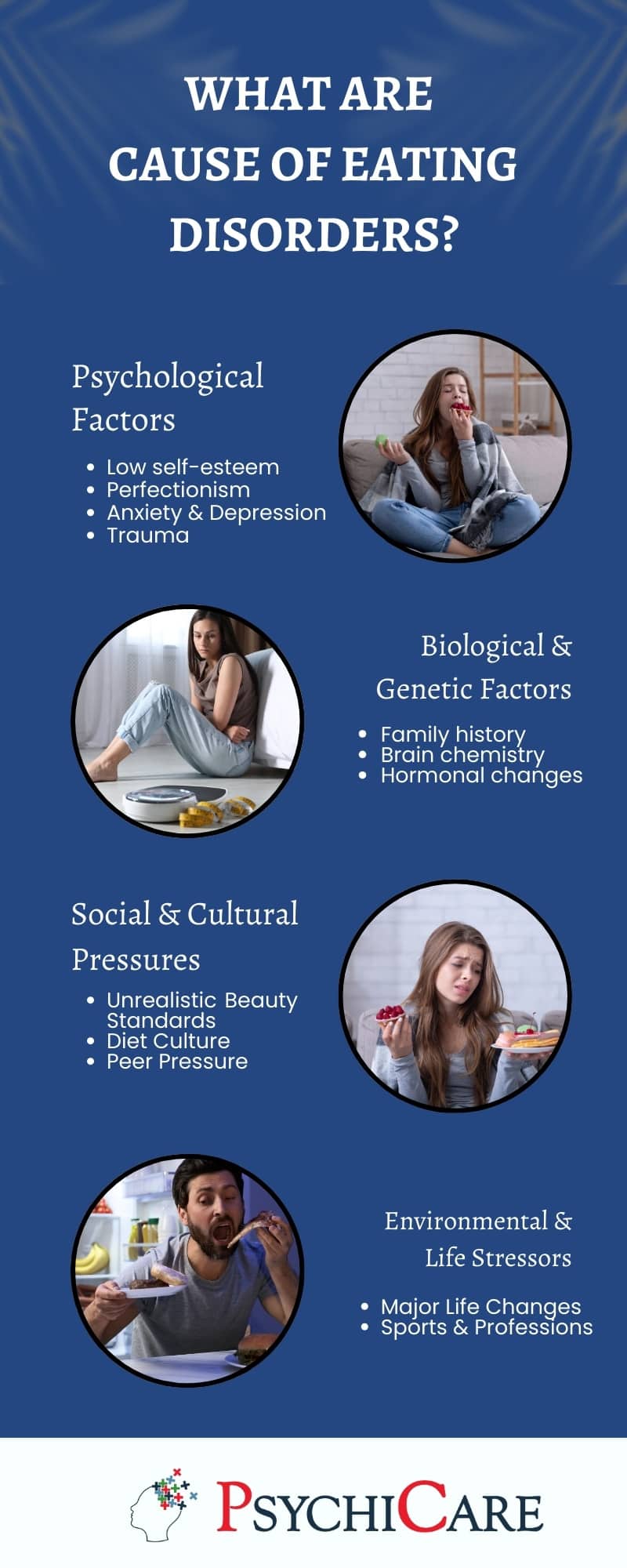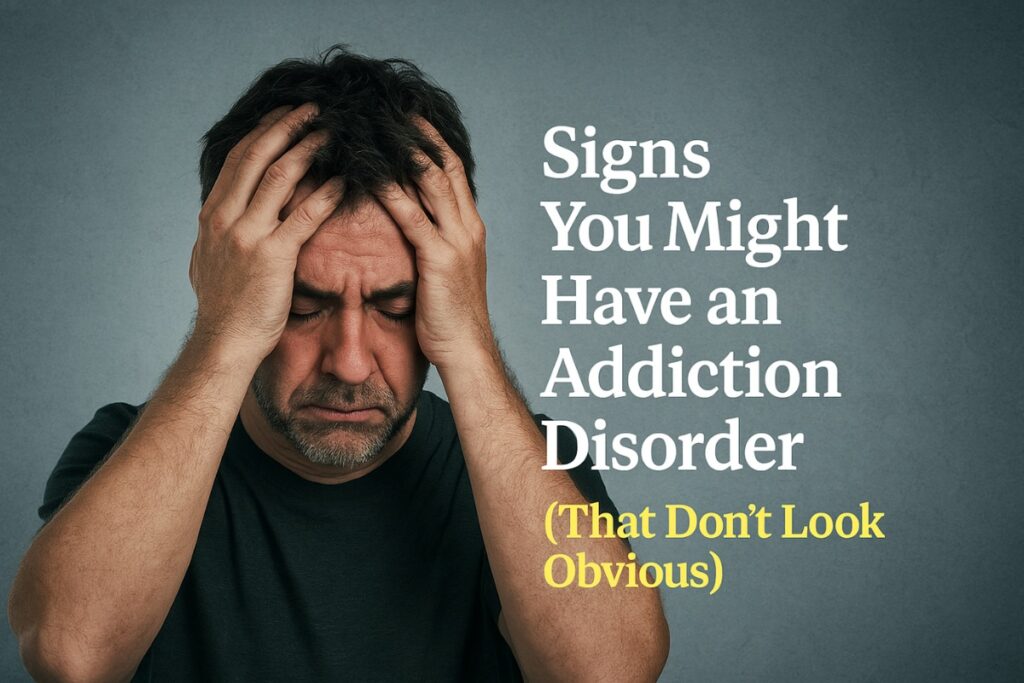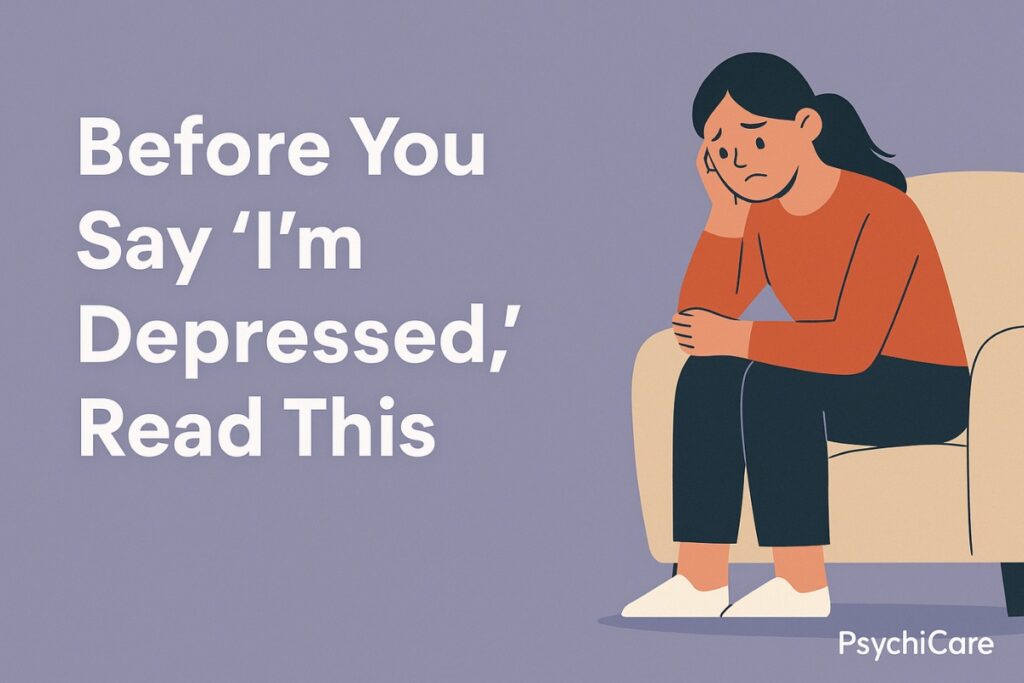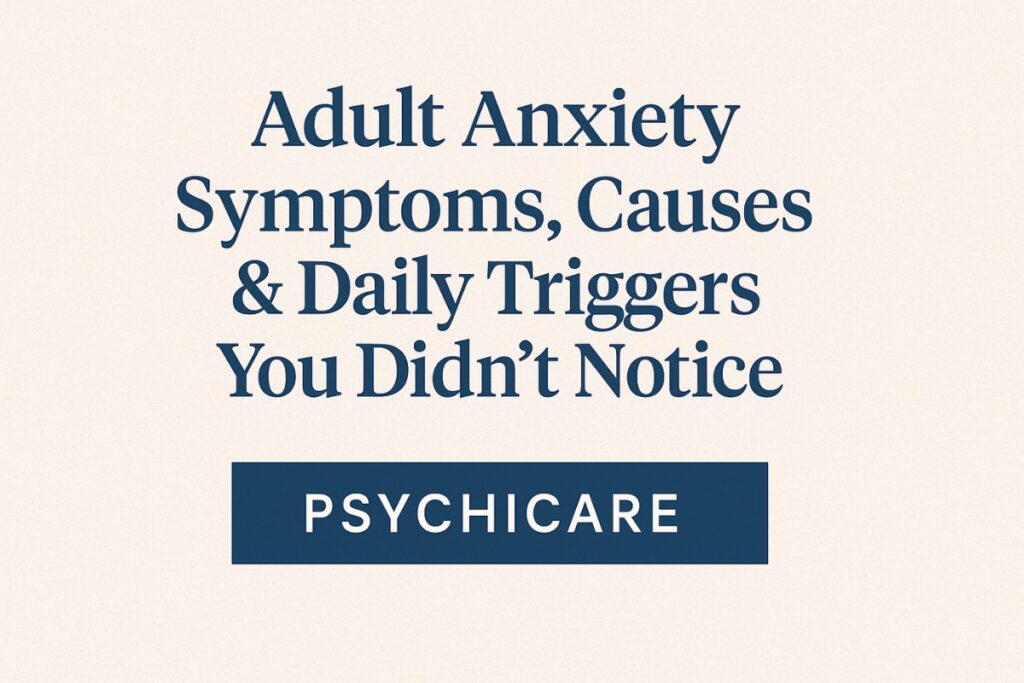As a psychologist, I see more clients than ever struggling with eating disorders. It’s not just about food—it’s about control, self-worth, and deep emotional pain. Yet, despite their devastating impact, these disorders remain widely misunderstood.
Here in 2025, the crisis is growing. In the U.S., 9% of the population—28.8 million people—will experience an eating disorder, with someone dying every 52 minutes as a direct result. In India, cases are rising, especially among young adults, driven by stress and unattainable beauty standards. Shockingly, fewer than 6% of those affected are medically classified as underweight, proving this illness is often invisible.
If eating disorders have the highest mortality rate of any mental illness, why aren’t we talking about them more? How many people are suffering in silence? It’s time to break the stigma.
What are eating disorders?
An eating disorder is a serious mental health condition that affects a person’s relationship with food, body image, and self-worth. It goes beyond dieting or trying to lose weight—eating disorders involve extreme emotions, behaviours, and thoughts about food and body shape, often leading to dangerous health consequences.
What is the cause of these disorders?
Eating disorders don’t have a single cause—they develop from a complex mix of psychological, biological, and social factors. Here are some of the main contributors:
1. Psychological Factors
- Low self-esteem – Feeling unworthy or not good enough can lead to body dissatisfaction.
- Perfectionism – The need to be “perfect” can push someone toward extreme control over food.
- Anxiety & Depression – Many people with eating disorders also struggle with mental health issues.
- Trauma – Experiences like bullying, abuse, or loss can trigger disordered eating as a coping mechanism.
2. Biological & Genetic Factors
- Family history – If a close relative has an eating disorder, the risk increases.
- Brain chemistry – Imbalances in neurotransmitters like serotonin and dopamine can contribute.
- Hormonal changes – Puberty, pregnancy, or stress-related hormonal shifts may play a role.
3. Social & Cultural Pressures
- Unrealistic Beauty Standards – Social media, fashion, and entertainment promote thinness or a “perfect” body.
- Diet Culture – Society normalizes restrictive eating, making unhealthy behaviours seem acceptable.
- Peer Pressure – Friends, family, or even work environments can influence eating habits and body image.
4. Environmental & Life Stressors
- Major Life Changes – Moving, breakups, academic stress, or career pressure can trigger disordered eating.
- Sports & Professions – Athletes, dancers, and models face intense pressure to maintain a certain weight.

What are the different types of eating disorders?
- Anorexia Nervosa – Extreme food restriction, intense fear of gaining weight, and a distorted body image.
- Bulimia Nervosa – A cycle of binge eating followed by purging (vomiting, excessive exercise, or laxative use).
- Binge Eating Disorder (BED) – Frequent episodes of eating large amounts of food, often with guilt and no control.
- Avoidant/Restrictive Food Intake Disorder (ARFID) – Limited eating due to sensory issues, fear of choking, or other non-weight-related reasons.
Signs of Eating Disorders

Eating disorders often develop gradually, making them difficult to recognize. However, certain physical, emotional, and behavioral signs can indicate a serious problem.
1. Physical Signs
- Sudden or extreme weight loss or gain
- Weakness, dizziness, or fainting
- Thinning hair, brittle nails, or dry skin
- Stomach pain, bloating, or digestive issues
- Irregular or missing menstrual cycles (in females)
- Sensitivity to cold due to low body fat
- Swollen cheeks or jawline from purging
- Calluses or scars on knuckles from self-induced vomiting
2. Emotional & Psychological Signs
- Intense fear of gaining weight or obsession with body shape
- Low self-esteem and constant self-criticism
- Depression, anxiety, or extreme mood swings
- Perfectionism and need for control
- Guilt, shame, or secrecy around eating
- Feeling out of control when eating (binge eating)
3. Behavioral Signs
- Skipping meals or refusing to eat certain food groups
- Eating very small portions or obsessively counting calories
- Frequent dieting, fasting, or excessive exercise
- Going to the bathroom right after meals (possible purging)
- Hoarding or hiding food
- Wearing baggy clothes to hide weight changes
- Avoiding social gatherings involving food
Treatment of Eating Disorders
Eating disorders need a complete treatment plan that focuses on both physical and emotional health.
1. Therapy (Psychotherapy)
Cognitive Behavioral Therapy (CBT) helps people change negative thoughts and habits about food and body image.
2. Nutrition Counseling
A dietitian can help create a balanced meal plan and teach healthy eating habits.
3. Medical Care
Some people need medical help to treat health problems caused by eating disorders, such as weakness, heart issues, or nutrient loss.

Eating Disorders in Teenagers
Many eating disorders start in the teenage years due to peer pressure, body image concerns, and social stress. Early support can prevent serious health problems.
How a Psychologist Can Help
A psychologist helps people understand their eating disorder, manage stress, and build healthy coping skills.
Do I Have an Eating Disorder?
Ask yourself:
- Do I think about food and weight all the time?
- Do I avoid eating or eat too much at once?
- Do I feel guilty after eating?
If so, getting help from a professional is important.
Why Do Eating Disorders Happen?
Many factors play a role, including low self-esteem, fear of losing control, past trauma, or the need to be “perfect.”
What is Binge Eating Disorder?
This disorder makes people eat large amounts of food in a short time, often feeling guilt and shame afterward. Therapy and support can help break the cycle.
Eating disorders are serious, but recovery is possible. Seeking help is a step toward healing.
FAQs (Frequently Asked Questions)
Q: Can eating disorders be cured?
With proper treatment, support, and commitment to recovery, individuals can overcome eating disorders and lead fulfilling lives.
Q: Are eating disorders only prevalent in females?
A: No, eating disorders can affect people of all genders. However, they are more commonly diagnosed in females.
Q: Can I recover from an eating disorder without professional help?
A: While professional help is strongly recommended, having a supportive network and engaging in self-care activities can also contribute to recovery.
Q: How long does eating disorder treatment usually take?
A: The duration of treatment varies depending on individual circumstances. Recovery is a journey, and it may take months or even years to achieve sustained healing.
Q: Can I prevent eating disorders in my children?
A: Promoting a healthy body image, open communication, and a balanced approach to food can help reduce the risk of eating disorders in children.




